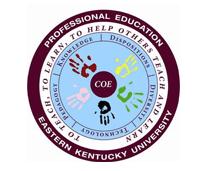Abstract
The purpose of this paper was to explore how various features of electronic books captured students’ attention and built their confidence and knowledge base, and to what extent, if any, reading electronic books supported critical thinking skills and understanding of the text of students in grades K-12; the experienced teachers were enrolled in a summer reading/writing literacy program, offered by a mid-western university. The graduate reading methods course consisted of a tutoring session utilizing electronic books to improve the comprehension of students in grades K-12. The experienced teachers implemented electronic books to provide a context that helped their students to build conceptual and experiential background as they construct meaning and develop important literacy skills. The electronic books helped K-12 students expand their knowledge of fluency and retelling as they followed along reading for meaning and pleasure. The interactive capabilities of electronic books made the screen more attractive to K-12 students and thus supported their understanding of the text. They demonstrated what they understood from the text in book discussions; therefore, the electronic books were useful to them. The electronic books, multimedia applications, and audio recordings were part of the instruction and played a prominent a role in increasing levels of comprehension. The experienced teachers, who were exposed to electronic books, responded positively to implementing them into the curriculum. This paper may serve as a model for both professors in teacher education and reading teachers to integrate technology in a meaningful context in their instruction.
Recommended Citation
Islam, Chhanda Dr.
(2011)
"Incorporating Electronic Books into a Graduate Reading Methods Class: Improving the Comprehension of Students in Grades K-12,"
Journal of Excellence in College Teaching and Learning: Vol. 6, Article 3.
Available at:
https://encompass.eku.edu/kjectl/vol6/iss1/3

